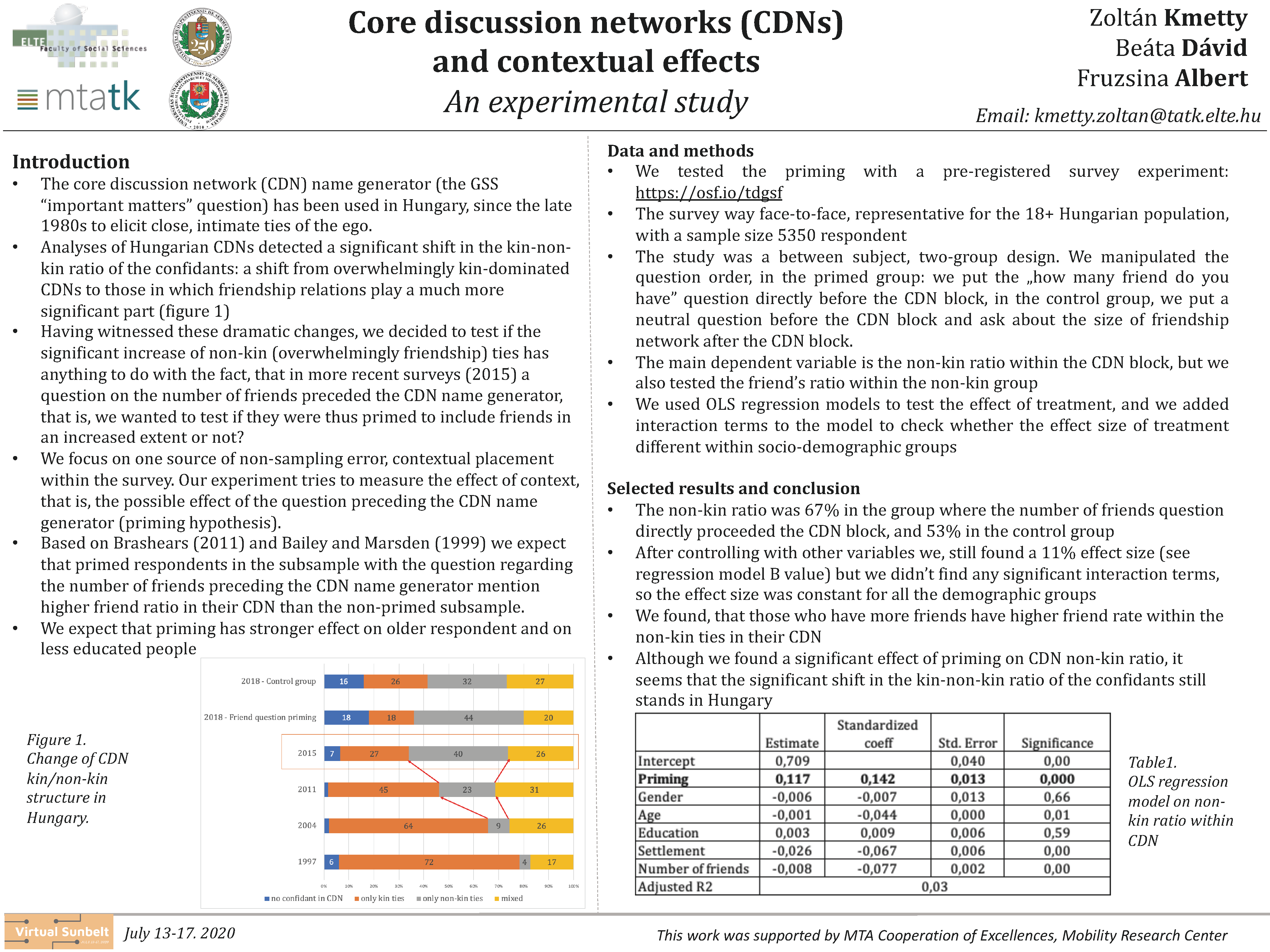
Core discussion networks (CDNs) and contextual effects: an experimental study
Fruzsina Albert, Beáta Dávid, Zoltán Kmetty
The core discussion network name generator originating from the General Social Survey (GSS) in the US has been widely used trying to identify the most intimate circle of relationships of the ego in a number of countries. It has been used in Hungary since the late 1980s in various surveys, in various contexts. Over time, Hungarian core discussion networks have indicated significant structural changes, a shift from overwhelmingly kin-dominated CDNs to those in which friendship relations play a much more significant part.
In the meantime, several studies identified issues related to this network-delineating tool. The apropos of a number of such studies was the unexpected finding published by McPherson, Smith-Lovin, and Brashears (2006) comparing the CDNs of adult Americans in 1985 and 2004, indicating a significant increase of those without confidants and a decrease of the number of confidants as well, but these results contradicted data from other relevant sources and plausible explanations were missing, too. Some of the issues brought up by following studies were the interviewer effect or that the preceding question was very taxing, which focused attention to the context of the name generator.
Previous analyses of Hungarian data detected a significant shift in the kin and non-kin ratio of the confidants. Having scrutinised the context of the CDN question in various survey years, we decided to test if the significant increase of non-kin (overwhelmingly friendship) ties has anything to do with the fact that a question on the number of friends precedes or not the CDN name generator. We designed a survey experiment on a nationally representative adult sample to test the effect of the context of the question. One half of the respondents answered the CDN question after they were asked about the number of their friends, the other half answered it following a neutral question. The results show a significant increase of the non-kin ratio in case the question about the number of one’s friends preceded the CDN name generator. This effect is different for various demographic groups. Based on the results we also add a correction factor for the previous CDN results regarding kin-ratio value. 
← Schedule

